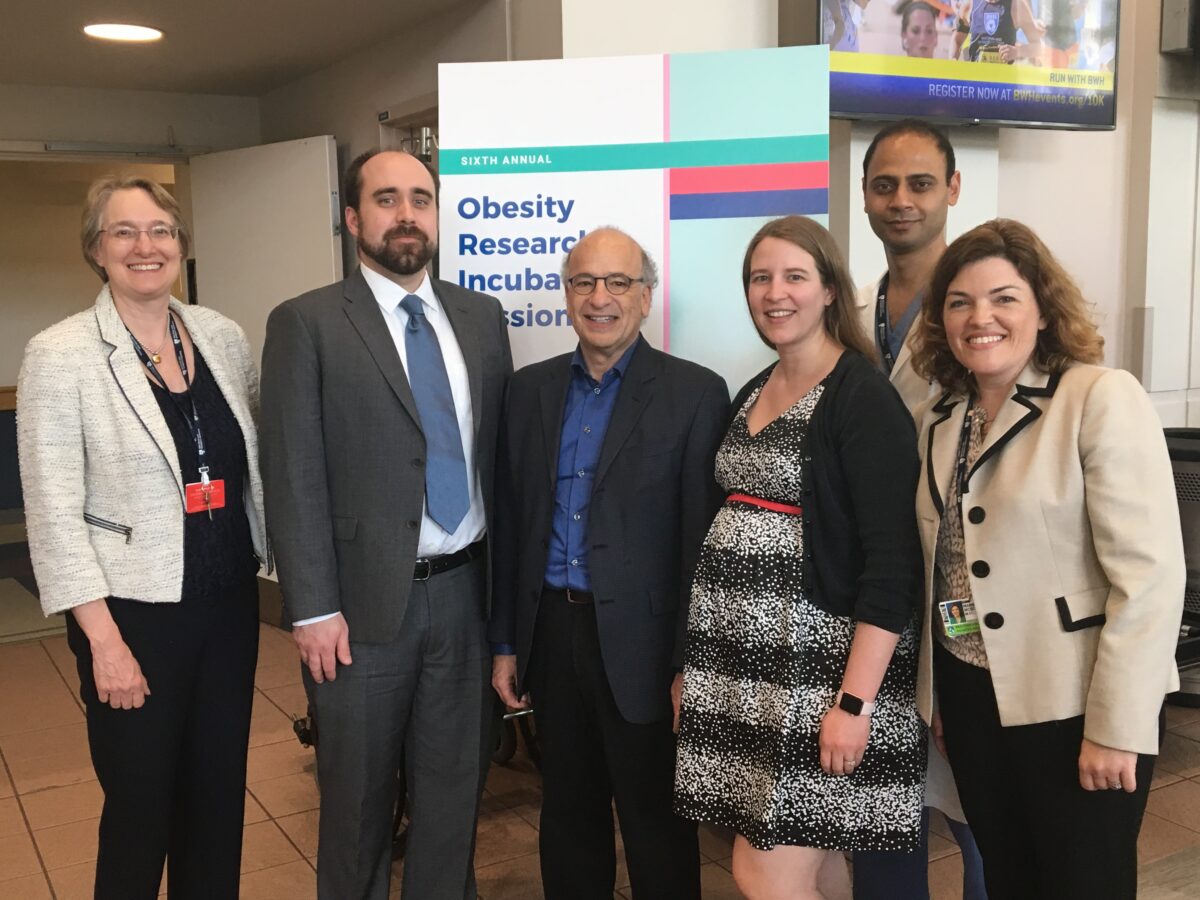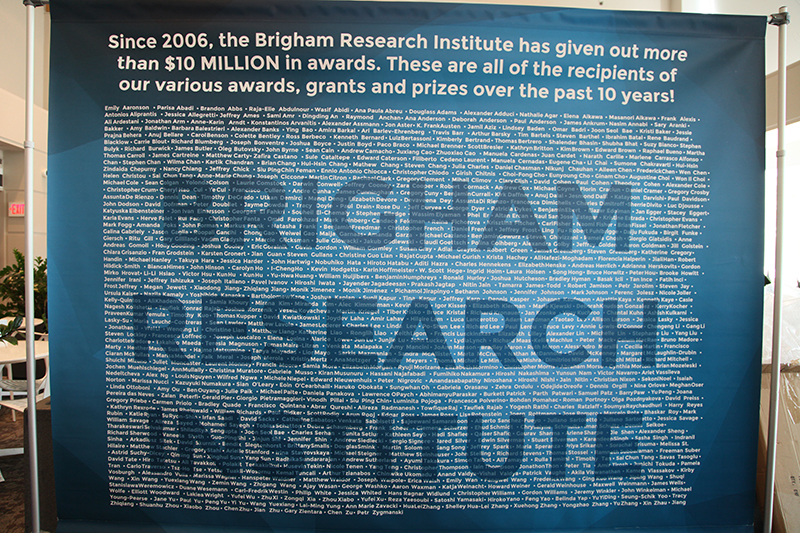On Monday, March 26th, clinicians and researchers convened at the 7th Annual Obesity Incubator Session hosted by the Cardiovascular, Diabetes & Metabolic Disorders (CVDM) Research Center of the Brigham Research Institute to address the significant challenges associated with this public health crisis. The goal of the event was to promote cross-collaborative research and stimulate new ideas for further investigation in the fields of obesity, diabetes, and cardiovascular disease.
Keynote speaker, Dr. Rudy Leibel, Professor of Pediatrics and Medicine and Director of the New York Obesity Nutrition Research Center at Columbia University, has focused his research on the genetics of obesity and noninsulin-dependent diabetes. He delivered a thought provoking presentation describing the innovative methods his lab has employed using stem cells to elucidate the genetic basis of human metabolic diseases. Special guest speaker, Dr. Rachel Carmody, Assistant Professor in Human Evolutionary Biology and Director of the Nutritional & Microbial Ecology Laboratory at Harvard University, captivated audiences with her research on the gut microbiome and how it responds to diet. Her unique perspective and approach to understanding human metabolism considers the human body as an ecosystem and combines experimental techniques from evolutionary biology, nutrition, physiology, microbiology, and metagenomics.
To begin this 7th Annual Obesity Incubator, Dr. Leibel and Dr. Carmody’s presentations were preceded by three short talks selected from the research community: Instructor, Deirdre Tobias, Sc.D., from Brigham and Women’s Hospital and Harvard Medical School; Assistant Professor, Laura Holsen, Ph.D. from Brigham and Women’s Hospital and Harvard Medical School; Postdoctoral Fellow, J. Humberto Trevino-Villarreal, M.D., Ph.D., from Harvard School of Public Health.
The subsequent poster session featured 21 research projects from assistant professors, instructors, and postdoctoral researchers/clinical fellows. These posters displayed current work in obesity, diabetes, and cardiovascular disease, drawing in a large crowd of people that initiated many enthusiastic conversations among the scientific community. While the judges had a hard decision to make with the impressive breadth of abstracts, they, ultimately, chose to award three researchers that stood out among the rest; Postdoctoral Fellow Jingyi Qian, Ph.D. from Brigham and Women’s Hospital and Harvard Medical School, Postdoctoral Fellow Mehmet Furkan Burak, M.D. from Brigham and Women’s Hospital and Harvard Chan School of Public Health, and Instructor Samir Softic, M.D. from Brigham and Women’s Hospital and Boston Children’s Hospital.
Agenda
Invited Speakers
Dietary sensitivity of the gut microbiome: considerations for metabolic disease
Rachel Carmody, Ph.D., Assistant Professor of Human Evolutionary Biology, Harvard University
Stem cell-based strategies to elucidate human metabolic disease
Rudolph L. Leibel, MD., Professor of Pediatrics and Medicine, Columbia University
Selected Speakers
Circulating Branched-Chain Amino Acids and Incident Cardiovascular Disease in a Prospective Cohort of US Women
Deirdre K. Tobias*, Patrick R. Lawler, Paulo H. Harada, Olga V. Demler, Paul M Ridker, JoAnn E. Manson, Susan Cheng, Samia Mora
Hypothalamic and nucleus accumbens cerebral blood flow vary as a function of long-term carbohydrate-to-fat ratio diets
Laura M. Holsen*, Hilal Cerit, Belinda Lennerz, Scott Hoge, Taryn Hye, Priyanka Moondra, Jill M. Goldstein, Cara B. Ebbeling, and David Ludwig
Activation of an hepatic CREBH-ApoA5 axis increases peripheral VLDL-triglyceride clearance in response to dietary protein restriction
J Humberto Treviño-Villarreal*, Justin Reynolds, Alex Bartelt, Kent Langston, Michael MacArthur, Sarah Mitchell, Kaspar Trocha, Joerg Heeren, C. Keith Ozaki, Luigi Fontana, and James R. Mitchell
Poster Winners
Sex differences in the effects of circadian misalignment on appetite hormones and substrate utilization
Jingyi Qian*, Rosanna Caputo, Christopher J Morris, Frank AJL Scheer
A Monoclonal anti- aP2 Antibody treats type 2 diabetes and Fatty Liver Disease
M. Furkan Burak*, Karen Inouye, Ariel White, Alexandra Lee, Gurol Tuncman, Ediz S. Calay, Motohiro Sekiya, Amir Tirosh, Kosei Eguchi, Gabriel Birrane, Helen Neale, Carl Doyle, Adrian Moore, and Gökhan S. Hotamisligil
Dietary Sugars Alter Fatty Acid Oxidation and Mitochondrial Function in Part Via Hyperacetylation of Mitochondrial Proteins in Liver
Samir Softic*, Jesse G. Meyer, Guo-Xiao Wang, Manoj K. Gupta, Hans P.M.M. Lauritzen, Shiho Fujisaka, Dolors Serra, Laura Herrero, Jennifer Willoughby, Kevin Fitzgerald, Olga Ilkayeva, Christopher B. Newgard, Bradford W. Gibson, Birgit Schilling, David E. Cohen, C. Ronald Kahn.
*Denotes that this person was the poster presenter/speaker

